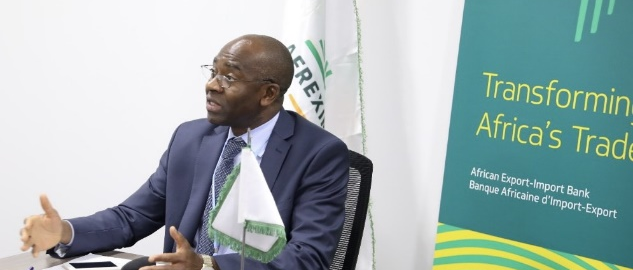The energy demand of Nigeria and other African countries is expected to grow by 50 per cent over the next two decades, spurring large scale investment in logistics, storage facilities for liquefied petroleum gas (LPG), a pan-African multilateral trade finance institution, African Export–Import Bank (or Afreximbank), said at the weekend. Aside Awambeng, other Afreximbank execs that made presentations at the London forum included Regional Chief Operating Officer for Anglophone West Africa, Eric Monchu Intong and Senior Manager for Syndications, Babajide Bode-Harrison. They all unpacked Africa’s hydrocarbon investment prospects and the key drivers of global oil and gas demand growth. Intong said Africa’s downstream sector currently requires a significant amount of infrastructure development including pipelines, refineries and storage facilities – presenting an opportunity for investors to develop associated infrastructure and logistics projects.
An increase in fossil fuel production and refining is expected over the next two decades. Pipelines to power stations to fertilizer plants, for example, will precipitate significant industrial development. Bode-Harrison said product import programmes, partnership opportunities and trade finance programmes were also key to unlocking development in Africa’s hydrocarbons domain and presented strategic areas for collaboration. In response to the increasing refined product import needs of the continent, a more formalized process of aggregating, reorganizing and financing refined product supply has arisen, with Afreximbank working with national oil companies (NOCs) to develop product import programs to ensure energy security. At present moment larger financing packages were required to meet Africa’s rising product demand, especially in the current geopolitically-induced price increase environment. Investment into Africa’s oil and landscape and its associated trade and partnership opportunities will be discussed at African Energy Week 2023, taking place in Cape Town from October 16-20. The event will unite African energy leaders, global investors, and executives from across the entire energy value chain to discuss the future of the African energy industry.

Its Global Head and Director for Client Relations, Rene Awambeng, who pushed for energy investment in London during the International Energy (IE) Week, said: “Energy demand in Africa is expected to grow by 50 per cent over the next two decades. This growing demand will create opportunities for decarbonised energy infrastructure projects, logistics, storage, notably natural gas and LPG, that enable regional trade, and will create opportunities for renewable energy projects which will, in turn, increase energy security for Afreximbank member states.”
He added that to ensure bankability, energy infrastructure projects would need to account for the energy transition. Nigeria and other parts of Africa are home to some of the world’s largest oil and gas reserves – boasting over 125 billion barrels of proven crude oil reserves and 220 trillion cubic feet of proven gas reserves – major investment opportunities have arisen across gas exploration and monetisation, gas-to-power, energy storage, infrastructure development. Major gas finds in Mozambique, Uganda, Tanzania, Egypt and Senegal – alongside flaring reduction across the continent, to decarbonise Africa’s exploration and production (E&P) sector – are expected to accelerate gas utilisation and monetisation activities. “These create opportunities for investments in LNG, FLNG trains and LPG for local industry and domestic consumption,” Awambeng said, amid Africa’s rapidly growing population and heightened industrialisation and rising power demand.
“With financing African oil and gas projects representing a point of debate globally, the African Energy Chamber remains resilient in its support for investing in African hydrocarbons, recognizing the role these resources will play in making energy poverty history by 2030. African-based organizations such as Afreximbank have remained committed to African people and African energy, and its support for Africa’s energy future remains unwavering,” Executive Chairman of the African Energy Chamber,” NJ Ayuk, said.




